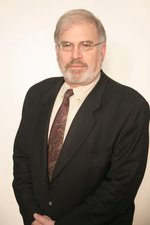Tuesday, December 13, 2005
Ethics and Cabela's in Indiana

By Maurice M. Eisenstein
Post-Tribune guest columnist
Two years ago I addressed the Northwest Indiana Quality of Life Council on ethics in public service. With the leaders of governmental units, universities and businesses in attendance, I told them that ethics is different from legality because an act is frequently unethical without necessarily being illegal. Ethics is enforced by public opinion and leadership. Ultimately, ethics depends on enforcement. It is a question of their leadership and acting as role models. No surprise, I was never invited back.
NWI is an ethical political wasteland because the political leadership, as represented in the Quality of Life Council, is not willing to call unethical behavior by its accusatory name -- evil. (Dan Lowery's efforts are of one person, and he is not a government official.)
In Gary, we have the Urban Enterprise Association confusing millions of dollars between personal and public use, and the School Board and the Library Board are misusing public funds for selfish private luxury, while borrowing funds to service the public. What critique have the so-called leaders who sit on the Quality of Life Council offered on this behavior? There is not a single peep -- never mind a squeak. Are they too afraid or just unaware?
Then there is the ethically challenged family, the McDermotts. The Cabela's deal crosses all possible ethical lines: financial conflict of interest, nepotism, cronyism and unethical manipulation of state power for personal gain. If there is to be any semblance of ethics in NWI public life, the same Quality of Life Council leaders should have the courage to confront these unethical shenanigans. But they have not.
Hammond has a strategically located beautiful piece of green space called the Woodmar Country Club. Where was the competition for the best offer to the club and to the city? There was none because McDermott Sr. was paid hourly to make sure this deal went through while the son as the city's mayor wielded the two-by-four. This crosses all acceptable ethical lines.
Then when the one option was forced upon the public (no one knows the potential alternatives because none was sought), the commercial development of this 100 acres of green space was turned over to daddy's other son.
The misleading claim was -- this is for economic development. Retail development has never been economic development. By its nature, it provides low-paying jobs and takes money out of the community.It is not necessarily bad, but it is not economic development.
Despite the pep rally visit to Kansas City, Cabela's did little for the economic development of that city. In 2002, when the store opened, Kansas City was already listed as 35th among the 268 top metro centers for the creative class by Richard Florida, the guru of economic development. According to the University of Kansas' Policy Research Institute, educational attainment in public schools was improving steadily and had been before the store came in. Since 1990, people with college degrees have been steadily increasing to twice the national average. Before Cabela's, Kansas City ranked third in the nation in the percentage of people with college degrees and third in the nation for job growth. Cabela's has been irrelevant.
Now look at Hammond, where the McDermott family continues to appropriate personal gain from the public trust just as the boards in Gary have. Where are the ethics? The leadership in the Quality of Life Council needs to stand up and say enough is enough.
Maurice M. Eisenstein is a professor at Purdue University Calumet. His opinions do not represent Purdue University. Contact him at m_eisens@calumet.purdue.edu